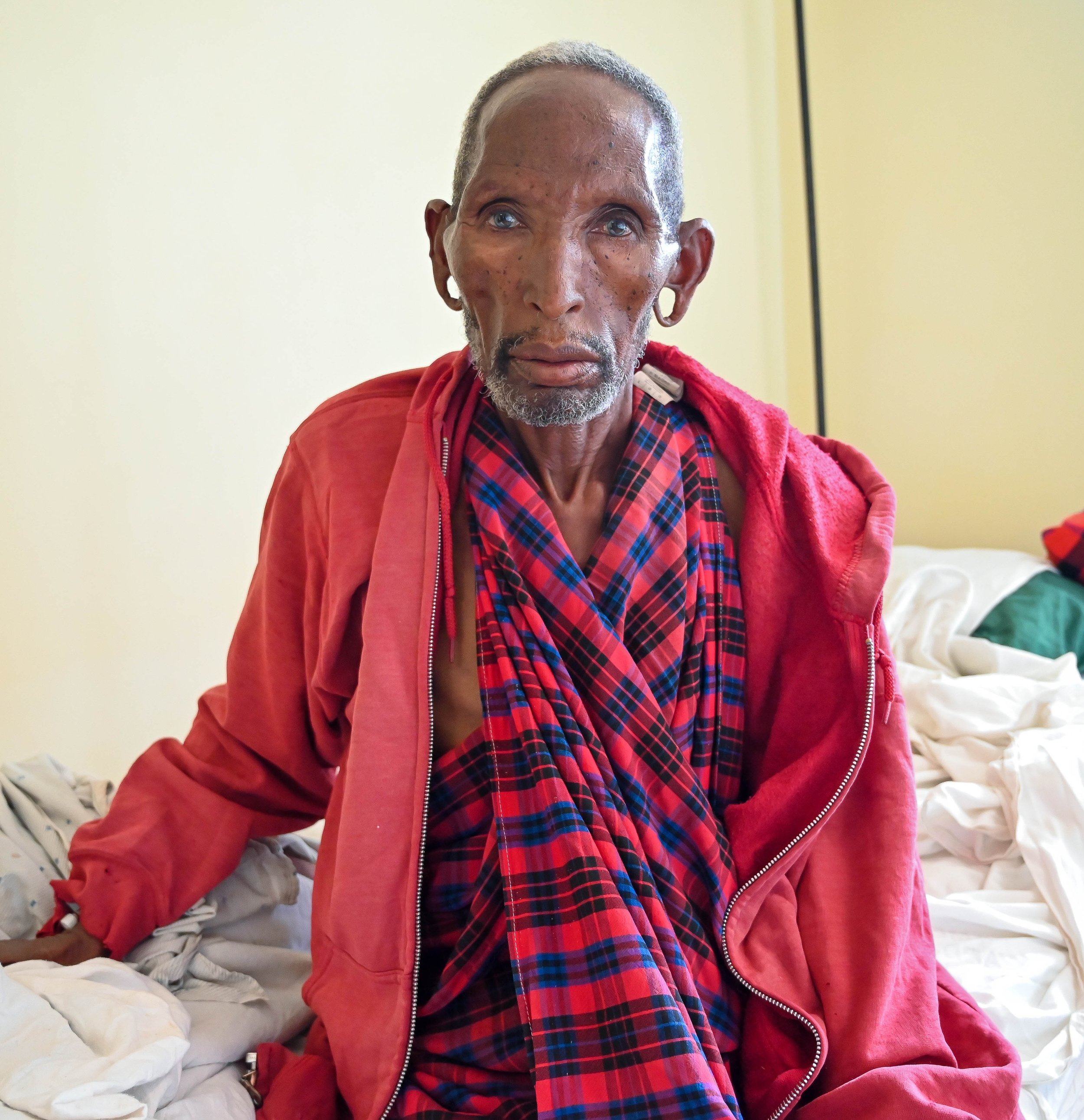Mzee Tajiri
78-year-old Mzee Tajiri* has never had surgery in his life before. He has managed to stay, in his words, “very healthy” and has needed little to no medical intervention over the years. Sadly, he recently suffered a traumatic illness that almost left him dead and surgery was the only way to save his life.
“My stomach was very big, painful and I could not pass any stool. I asked my family to take me to the hospital. They carried me four miles to the local village clinic, where I was admitted for three days, but my condition worsened. I quickly resigned to my fate, that I was going to die. My time had come.”
As Mzee Tajiri’s condition quickly deteriorated, his family wanted to take him to a bigger hospital, hoping he would access better healthcare. But Mzee Tajiri was not having it.
“I knew I would die and wanted everyone to leave me in peace. Finally, my family called my brother, who works in a big town. He came and forcibly discharged me from the clinic, put me in his car and drove me to FAME. He said FAME was a good hospital that saved lives and that I should give it a chance. Since I was too weak to fight him, we drove to FAME.”
Mzee Tajiri and his brother arrived at FAME at 3 am. He was coherent and conscious and knew what was happening, but he was in severe pain and begging for help.
“When we received him at FAME, it was clear that this was a fight against the clock. He was very sick and we reckoned we had little time to save him. We quickly summoned FAME’s surgeon, Dr. Emmanuel Erick Manjira, to consult on the case and he determined that Mzee Tajiri needed an emergency laparotomy to save his life.”
Mzee Tajiri presented with an abnormally swollen outward abdomen. Dr. Manjira ordered an abdominal X-ray which revealed he had intestinal obstruction, which occurs when a loop of the intestine twists around itself, causing bowel obstruction. The team had to perform a laparotomy to repair this as it was impairing blood flow, causing him much pain.
The operation was a success and Mzee Tajiri was discharged after four days. He was asked to continue dressing the wound in a hospital closer to his home and to return for a check-up after four weeks.
“This condition can occur to anybody but mostly people with excess redundancy in the sigmoid colon [a redundant colon is an abnormally long colon that cannot fit inside the body without looping or twisting]. Another possible cause is a tumor; however, in Mzee Tajiri’s case, it was just the redundancy of the colon.”
Mzee Tajiri poses with his son in FAME’s Ward 1.
“When the doctors told me that I had to have surgery, I was not scared, even though this was the first surgery ever in my life. I just needed the pain to stop. This surgery saved my life and took the pain away. This has been my first time at FAME and I’m so glad my brother insisted on bringing me here. I have received good care. I’m looking forward to going back home and starting my healing journey. I feel like a young man!”
“When Mzee Tajiri woke up from surgery, he immediately looked at his abdomen and exclaimed, ‘Where is my stomach?!’ in response to the fact that his big stomach when he came to FAME was now flat. We had to explain it was part of his healing process!”
*The patient’s name has been changed to protect their privacy and permission was secured to share her story. The quotes have been translated from Maasai to English.




















